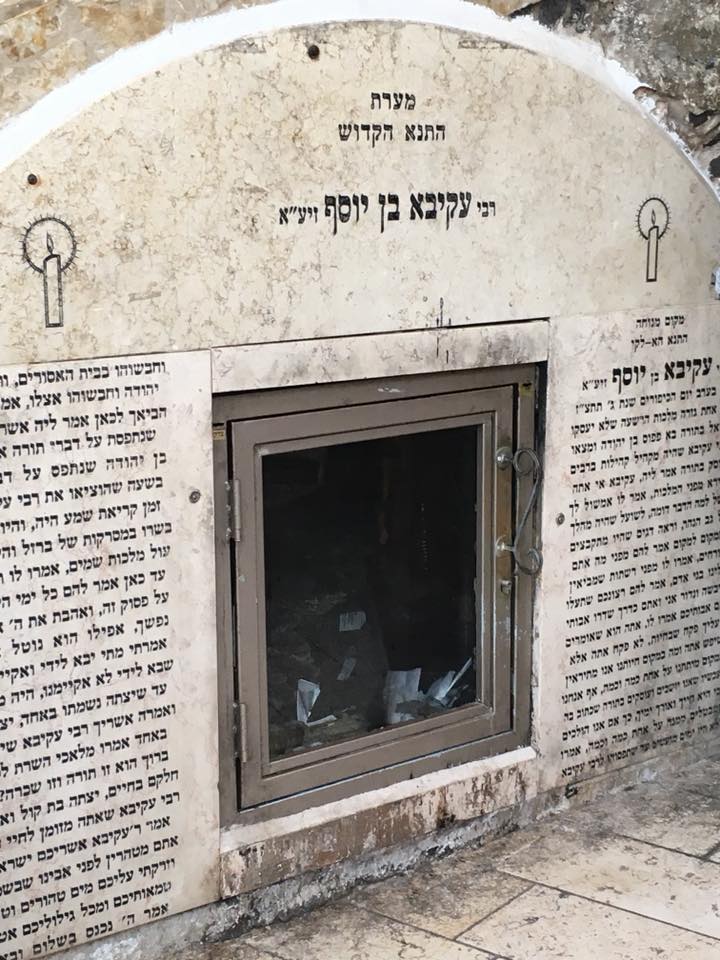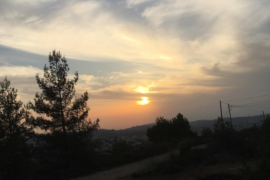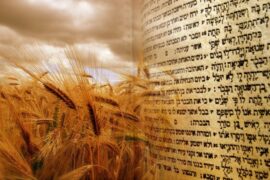The ninth of Tishrei , just before Yom Kippur, marks the day on which Rabbi Akiva ben-Yosef was publicly executed by Rome.
Rabbi Akiva was the greatest of the Talmudic sages and the leading voice of resistance to Roman rule in Judea. He served as the spiritual leader of the Bar Kokhba Revolt and inspired generations with his heroism and self-sacrifice.
The Talmud (Brakhot 61b) describes Rabbi Akiva’s martyrdom in detail. He stood trial and was found guilty of publicly teaching Torah, which the empire had banned due to fear that the Torah’s teachings would incite Jews to violent resistance (see Mishnah Torah Hilkhot Ḥanukah 3:1, the Ramban’s supplement to the Rambam’s Sefer HaMitzvot 4, Shulḥan Arukh Even HaEzer 75:6, Pesikta Rabati 34, Magid Mesharim Parshat Vayikra and Ḥesed L’Avraham 3:7 for some of the sources demonstrating Hebrew independence in Eretz Yisrael to be a foundation for proper Torah observance).
The Romans publicly tortured Rabbi Akiva to death, flaying off his skin with sharpened iron combs.
As his skin was being torn from his body, Rabbi Akiva spent his final moments on earth reciting the שמע ישראל. His students asked him: “Our master, even now?!”
He responded: “The שמע ישראל teaches us to love HaShem with all our souls (D’varim 6:5), which I understood to mean ‘even if they are taking your soul.’ My entire life I agonized over this verse: Would I really love HaShem even if my soul were being taken? I at last have the opportunity to demonstrate this. How could I not do so now?”
And as he shouted “!ה׳ אחד” his soul departed his body.
It’s important to note that Rabbi Akiva’s greatness in Torah and leadership was largely due to the greatness of his wife Rachel.
Rachel was raised the daughter of a wealthy man but sacrificed all of her possessions to marry her father’s uneducated (and significantly older) shepherd. Rejected by her father, she and her husband lived a life of poverty and slept on a bundle of straw.
Rachel pushed Akiva, likely already an anti-Roman Zealot, to learn Torah while she took responsibility to support them both through hard labor. If not for her self-sacrifice, Israel would have been missing our greatest Talmudic sage and the development of Jewish history and Torah thought would have been radically different.
It was to Rachel that Rabbi Akiva would gift a piece of jewelry called the ירושלים של זהב before embarking on the Bar Kokhba Revolt to free Jerusalem from Roman rule.
After the Romans killed both Bar Kokhba and Rabbi Akiva, most of our people despaired of resisting the empire. The surviving freedom fighters went deep into hiding and were publicly disavowed by many of Israel’s leading sages, who were justifiably careful not only to avoid antagonizing the Roman Empire but also to create the impression that the rebels did not represent mainstream Torah thought.
The rebellion disbanded as Judea reconciled itself to Roman rule. But one of Rabbi Akiva’s students, Rabbi Shimon bar-Yoḥai, refused to accept foreign dominion over Jerusalem. As a fugitives from the empire, he and his son Elazar hid out in a cave where the legendary prophet Eliyahu taught them the deepest secrets of our Torah.
This Torah of revolution, although largely inaccessible to the masses, continued to clandestinely live on through the teachings of Rabbi Shimon bar-Yoḥai and subsequent giants throughout Israel’s exile, most notably Rabbi Yehuda HaLevi, the Ramban, the Maharal, the Ramḥal, the Vilna Gaon, Rav Avraham Yitzḥak HaKohen Kook and many others.
Rabbi Akiva’s teachings also found practical expression over the centuries through several daring attempts to restore Jewish independence to Palestine, until 20th century Jewish rebel fighters succeeded in defeating the British Empire and restoring freedom to the Land of Israel . And then in 1967, when Israel returned to Jerusalem during the Six Day War, this revolutionary Torah suddenly began to spread once again through Israeli society.
But the reestablishment of Jewish independence in Eretz Yisrael didn’t close the curtain on the drama of Jewish history. There’s still a long road ahead.





